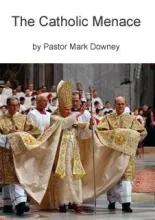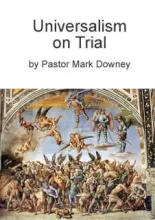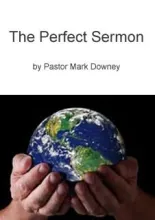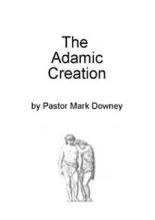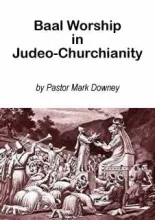Following God's Laws
by Debra Downey
Answering the question: "How do you know we must follow the laws of the Old Testament?"
The Bible says if you love God, you should follow His laws: "That thou mayest love the Lord thy God, and that thou mayest obey his voice, and that thou mayest cleave unto him..." (Deut. 30:20). There are many references, in both the Old and New Testament of how God's people, as a whole, have spent their whole existence in failure of obeying God and the misery that results. In chapter 9 of Daniel, Daniel is praying for his people because they have not kept God's Law. "Neither have we obeyed the voice of the Lord our God, to walk in His laws, which he set before us by his servants the prophets." (Daniel 9:10).The Laws of the Old Testament were set as an everlasting covenant between God and His people. There are both conditional and unconditional aspects to God's covenants with His people. It is written in Genesis 17 that God originally gave this covenant to a godly man, Abraham. That unconditional covenant promises Abraham that he will be the father of many nations, in which kings shall come out of him, and in verse 7 it says, "I will establish my covenant between me and thee and thy seed after thee in their generations for an everlasting covenant, to be a God unto thee, and to thy seed after thee." The key word here is everlasting. Abraham is reminded of this unconditional covenant again in verse 19: "And God said, Sarah thy wife shall bear thee a son indeed; and thou shalt call his name Isaac; and I will establish my covenant with him for an everlasting covenant, and with his seed after him" (Genesis 17:19). What exactly is a covenant? It is an agreement between 2 or more parties. There are responsibilities on both parts to keeping an agreement. God's covenant with his people, the descendants of Abraham through Isaac and his son, Jacob/Israel is that he shall be our God and will give us the conditional blessings of being His special people, provided we keep up our end of the agreement; and that is to obey His voice, including the keeping of the laws that He has given us.
Now, some Christians, and indeed many false teachers, have said that the entire Old Covenant has been replaced by the sacrifice of Jesus. But, one very important thing to keep in mind here is that Jesus said, "Think not that I am come to destroy the law, or the prophets; I am not come to destroy, but to fulfil. For verily I say unto you, Till heaven and earth pass, one jot or one tittle shall in no wise pass from the law, till all be fulfilled" (Matthew 5:17-18). Not one jot or tittle shall pass from the law. The sacrifice of Jesus was a new covenant, but that new Covenant was to replace ONLY the sacrificial laws, because Jesus died as the ultimate sacrifice for our atonement. In other words, the blood of the New Covenant, our Kinsman Redeemer, replaced the sacrificial laws of the Old Covenant.
So, with that being said, let's talk a little about the consequences of failing to keep our part of the Covenant. Failure to keep the laws is called sin. Sin is the transgression of the law. The wages of sin is death (Romans 6:23). Now do we really die when we sin? Maybe not right away, but then, no one is immortal, are they? Sin started with Adam and Eve. Adam and Eve were immortal before they sinned. What happened after they sinned? There was sorrow, pain, banishment from the paradise given them, and ... they were no longer immortal. The wages of sin is death. And we all sin, hence we all die.
For every sin, there is a consequence. Not all sins are 'equal'. Some have heavier consequences. For example, murdering someone has more serious consequences than violating the food laws. But, make no mistake about it, both sins DO have a consequence. You may not die tomorrow by eating the foods discussed as unclean in the Old Testament, but science has proven that certain foods, such as pork or shellfish can and will adversely affect your health, no matter how advanced our technology for keeping and cooking foods. Shellfish eat waste on the bottom of the ocean floor, and the pig's internal system does not allow for the excretion of toxins. Your body is a temple to God: "Know ye not that your body is the temple of the Holy Spirit which is in you, which ye have of God, and ye are not your own?" (I Corinthians 6:18). Violating the food laws has 2 consequences: 1) poisoning God's temple and 2) disobeying God's food laws (sin).
"For by grace are ye saved through faith; and that not of yourselves: it is the gift of God: Not of works, lest any man should boast" (Ephesians 2:8-9). This means that we are redeemed ONLY by the mercies of God and not by works or faith, but by God's mercies. God is going to take everything we do into account when he determines whether each of us are worthy of redemption. This means that, even for a Christian, this life is not a free for all; constantly breaking of God's laws, saying "I'm sorry" all the time, simply because of grace, faith and good works. No. We must also know what our responsibility is in our Covenant with God and try to keep that agreement, and repentance is a key concept here. Read and come to know the law. It's important to keep it, understanding that we all fail and fall short of the glory of God. Repent of sinful ways (disobedience to ANY of God's law), and constantly work on perfecting yourself through the maturing in Christ (becoming Christlike).
Today can be a new day for you, if you allow it. "If my people, which are called by my name (Christ-Christian), shall humble themselves, and pray, and seek my face, and turn from their wicked ways; then will I hear from heaven, and will forgive their sin, and will heal their land" (II Chronicles 7:14). Remember that we must turn from our wicked ways in order for our prayers to be heard.
- Log in to post comments

 "For thou art an holy people unto the Lord thy God: the Lord thy God hath chosen thee to be a special people unto himself, above all people that are upon the face of the earth."Deuteronomy 7:6
"For thou art an holy people unto the Lord thy God: the Lord thy God hath chosen thee to be a special people unto himself, above all people that are upon the face of the earth."Deuteronomy 7:6

